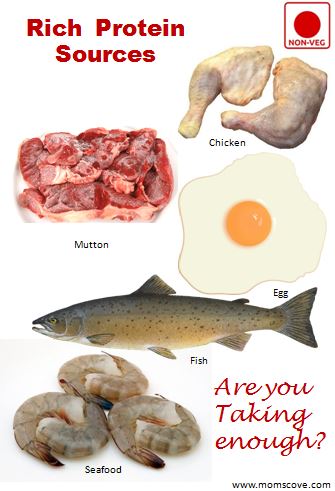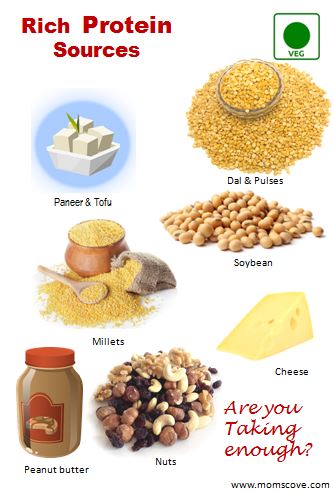
As a mother, I play an important role in shaping our family’s eating habits and what goes into their plates each day. And food for me plays an integral role in defining our family’s health and overall wellbeing. I personally believe that creating a positive influence on healthy food habits early on can help our children in the long run with their overall health and wellbeing.
For the food to be truly nourishing, it needs to be wholesome and balanced. In India, the traditional concept of ‘Thali’ is great, as it allows us to bring these different types of nutrients together on a plate for a truly balanced meal. This also means that a nutritious Thali needs to have the right blend of different nutrients like carbohydrates, proteins, fats, minerals, and vitamins.
Like most mothers, you may also be constantly worried about your family’s daily food and nutrition. You may have even consulted your child’s pediatrician to prescribe a ‘vitamin’, as you were worried that he/she might not be getting enough from their food.
But is your child eating enough protein? Are you serving enough protein in your family’s diet?
If your answers to these questions are ‘no’, then you are not alone!
Right to Protein, a campaign that aims to create awareness and educate Indians on natural sources of protein consumption, recently commissioned a nationwide survey of over 2000 mothers, to try and understand why protein continues to slip out of daily Indian diets. The survey findings have been shocking and have certainly helped me a great deal in understanding why my family may not be getting as much protein as they should
Let’s try and learn more about it and see how we can fix this. Why not start by discussing why we need protein?
Why Do We Need Protein?
Proteins are our body’s building blocks. They help build our tissues and bones. Proteins also help form enzymes and protective antibodies. Apart from building stronger muscles and repairing tissues, protein also boosts metabolism and immunity. It keeps us strong and healthy and protects us from age-related health problems.
Protein, in turn, is made up of 20 different building blocks called amino acids. We cannot synthesize 9 amino acids by our body and hence they are called essential amino acids. We are fully dependent on protein in our diet to provide us with these essential amino acids without which our health will suffer.
Not having enough protein may result in loss of muscle mass, which may lead to low strength, increased risk of bone fractures, longer recovery from injuries, as well as an increase in skin, hair, and nail-related problems. In fact, severe protein deficiency may also inhibit proper growth and physiological issues in children.
India is protein deficient
Did you know that we Indians consume approximately half the amount of protein Americans and Europeans consume? Not just that, it is also lesser than our neighboring Asian countries and even African countries. In fact, we Indians consume lesser protein compared to most countries in the world.
The reason for this was explored by Right To Protein, and what they found was interesting. They identified various gaps in knowledge, perceptions, and practices that are becoming obstructions in a way to adequate protein consumption: a phenomenon they term as Protein paradox.
The Protein Paradox
Let’s deep dive into the protein paradoxes that Indian mothers associate with –
While Indian mothers were aware of proteins and its importance for overall health, the long old myths associated with proteins are overshadowing protein consumption in Indian households. The study revealed that;
- 85% of mothers believed that multivitamin-fortified foods are more important than proteins
- 87% of mothers believed that vitamins & energy are more crucial than protein for children.
- 85% of mothers believe controlling calorie intake is more important than eating protein.
While the finding revealed that protein consumption was not the priority for most of the Indian mothers, it was even more concerning that despite the fact that they know the importance of protein, they were only able to identify 3 out of 11 protein-rich products during the survey. Not only that, over 81% believed that a normal diet of dal, roti, and rice is adequate for the daily requirement of protein.
Now, this is an eye-opener for me. What about you?
Now that we have identified the problem, the next big question is what can we do about it?
How can we change and get better?
We as mothers can introspect and bring about a change in our own household and be more protein aware.
Is my child getting enough protein in his/her diet?
Is enough protein reaching my family thali?
If you answered as yes, then you’re on the right track. But the rest of us need to learn more, be more aware, fight misconceptions, and eventually serve more protein to our family.
Food items that are rich sources of protein
You can be more conscious of including any of these protein-rich foods on a regular basis and in adequate quantities. No matter if you are a vegetarian and or a non-vegetarian, you have enough and affordable options to exercise your family’s right to protein!
Non-Vegetarian high protein sources
- Chicken
- Mutton and Lamb
- Eggs
- Fish
- Seafood

Vegetarian high protein sources
- Cheese
- Paneer
- Peanut butter
- Tofu
- Soybean
- Oats and millets
- Dals & Pulses
- Nuts

Food items we incorrectly believe are rich sources of protein
Though the following foods also contain some amount of protein, they are not entirely rich sources. If your family is consuming only these food items and tend to exclude ones from the lists above, it is likely that you are serving them a protein-deficient diet.
- Green leafy vegetables
- Fruits
- Rice
- Milk
- Curd
- Roti
Which are the protein-rich foods you are going to adopt in your household? Let us know in the comments section below. Also, please share if you have liked the article. You can spread the word and help mothers across the country to help their families be more protein sufficient!
Disclaimer: This article is Sponsored by Right to Protein, a nationwide public health awareness initiative.
Leave a Reply